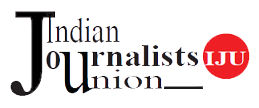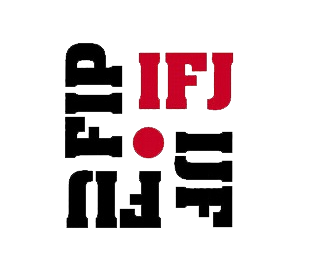- Geetartha Pathak
It is a difficult situation for unbiased and independent media of a particular country to cover news of war or military standoff on border issues between the home country of the media outlet and another neighbouring country. Contradictory claims and counter claims by India and China after the standoff between the troops of both the countries at Doklam, the trijunction point between China, India and Bhutan made it difficult for media to focus the real situation at the ground level.
Bhutan News Network (BNN) published a report on the issue on June 18 which said "About 89 square km area in Doklam Plateau, which overlooks the strategically important Chumbi Valley in the intersection of India ChinaBhutan, had been in dispute between Bhutan and China for a long time. India, in this instance, is making attempts to be party in the conflict."
BNN also reported "India says that Doklam is within Bhutan while China says it is inside Chinese territory". For all the hue and cry in both Indian and Chinese media on the border standoff along Doklam, their counterpart in Bhutan the 'third party' in the issueis relatively quiet.
Bhutan's media is offering only matter of fact reportage on the issue if one goes by what is available in the online versions of its news papers and on social media. There are not too many aggressive editorials or opinion pieces on the issue, in stark contrast to Indian and Chinese media.
On June 29, the Royal Government of Bhutan explained the situation in a statement: 'On 16th June 2017, the Chinese Army started constructing a motorable road from Doka La in the Doklam area towards the Bhutan Army camp at Zompelri. Boundary talks are ongoing between Bhutan and China and we have written agreements of 1988 and 1998 stating that the two sides agree to maintain peace and tranquility in their border areas pending a final settlement on the boundary question. The agreements also state that the two sides will refrain from taking unilateral action, or use of force, to change the status quo of the boundary.' Bhutan conveyed to Beijing that the construction of the road inside Bhutanese territory was a direct violation of the agreements and that it would affect the ongoing demarcation process.
No doubt, Bhutan and India are trusted friends and Bhutan acknowledges India contribution in development of the tiny Himalayan country. Before the 1949 Friendship Treaty was updated in 2007, India enjoyed the power to guide Bhutan in its foreign policy. Two thousand seven version of the Indo Bhutan Friendship Treaty freed Bhutan from seeking India's guidance on foreign policy and obtaining permission over arms imports, among other things. Without weakening the historical friendship with India, Bhutan wants to consolidate its sovereignty. However, the economy of Bhutan is largely dependent on India.
Change of India's commitment and imposition of new terms and conditions on power projects built in Bhutan by India put Bhutan in disadvantage. India's monopoly of power generation in Bhutan has irked the tiny Himalayan country. India's transition from complex tax regime to simple GST regime affected the economy of Bhutan badly which is reflected in Bhutanese media. Interestingly Tenzing Lamsang, the Editor of The Bhutanese, an independent newspaper in Thimphu, Bhutan in a recent article said: "In the bigger picture for Bhutan, Doklam, no doubt, is a serious issue, but it is a comparatively minor distraction compared to the developments in the economic sector."
All these factors should be brought into the perspective while media makes an impartial and knowledgeable story on the bilateral or trilateral issues involving India, Bhutan and China. A section of the media in China blamed India and criticised Indian action in Doklam. "The Global Times", an English newspaper controlled by the Chinese government and published from Beijing and Shanghai reported: "Indian troops have trespassed over the ChinaSikkim border, which is viewed as having already been demarcated, and is not a line of actual control.
The Indian side has changed arguments several times, first claiming that "China intruded onto Indian territory," but later saying "there was no incursion into our territory," followed by the claim that India is helping Bhutan safeguard its territory. India is acting shamelessly before the international community. New Delhi's real purpose is to turn the Donglang (Doklam) area of China into a disputed region and block China's road construction there.
However, a new article published in the Global Times on 31 July noted the 'bright side' of the standoff. It says the two governments have started to know each other. "If one insists the other is a strategic menace, it will lead to a self fulfilling of prophecy and eventually confrontation. But there is also a silver lining if the two sides can dispel their misunderstandings through communication and take measures to enhance official and peopletopeople exchanges, so as to improve bilateral ties." A large section of Indian media, which is traditionally hostile to China, blamed China for the current confrontation of troops of both the countries at Doklam. They criticised China's aggressive relations with its other neighbours, Japan, Vietnam, Taiwan etc. However, the Chinese media pointed at India's tense relations with neighbours like Pakistan, Nepal, Sri Lanka etc.
There is a campaign in the traditional and social media against Chinese products for Chinese stand on Arunachal Pradesh, Aksai Chin and Doklam. In an era of globalization and world trade regime it is neither feasible nor wise to completely boycott products from a country more so from a country like China which offers plethora of products at competitive prices. For example the cheap Chinese LED emergency lights have illuminated thousands of villages in India during night. The Indian companies either have failed to reach many remote villages or have failed to supply power to such villages at prime time.
Zhou Chenming (a military expert with Knowfar Institute for Strategic and Defence Studies, a nongovernment think tank in Jiangyin, Jiangsu province, China) told the South China Morning Post that China was well aware of the futility of an allout war for a desolate border area that is "frozen for up to eight months of the year. It said that besides the [human] casualties, the logistical cost of a border conflict between China and India would be inestimable. It is important for unbiased independent media to study the history, tradition and culture in analyzing the nuances of disputes between countries. Jingoism and ultra nationalistic approach are not tenets of ethical journalism.
Politicians use jingoism, nationalism or patriotism to consolidate their strength among masses. Unbiased media should alert the conscience of the people to not to be swayed by the hyperbole of the politicians and their cohorts and judge every statement and socio political development with the sense of right and wrong. We may hope that there will be peaceful solution to the Doklam crisis and media of the countries concerned will play a proactive role so that the months long standoff ends and the issue resolves permanently.



